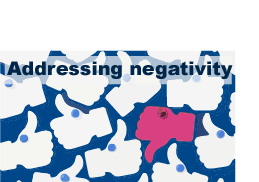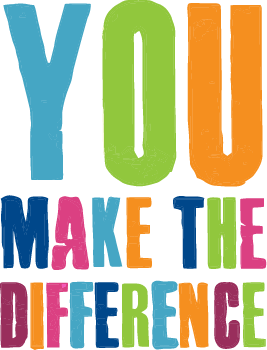Inspired to make a difference?
Outstanding! Here’s where we give you great tools to help make that happen.
Where does your community stand?
The first step in boosting community immunity is knowing what the vaccination rates are in your own community. School nurses and administrators are fantastic allies in getting the good word out about protecting your community from preventable disease. Approaching them in a positive, friendly way might be the easiest way to find out about your community’s immunization rates.
Several states also require schools to publicly disclose vaccination rates, and those rates are often available online and can be found on our resources page.
Another great tool is CDC’s Child Vax View, which can help you find national, regional, state, and selected local area data using interactive maps, trend lines, bar charts, and more.
Be active in promoting community immunity!
There are generally five great ways to promote community immunity:
- Get the word out
- Get connected
- Find allies
- Reward good behavior
- Engage local media
- Normalize vaccine conversations
- Get involved at Voices for Vaccines
Let’s quickly look at each of these – they are all easy to do and collectively, very effective.

Get the Word Out
So now you know what your local immunization rates are like. Great! Time to let others know, too. It’s time to hit the old keyboard and write your local school leaders, PTA president, legislators, pastors, etc. Let them know how well-protect your community is – or how much work your community still needs to do to be better protected.
Couldn’t find your immunization rates? Let the people in charge know you want them by making a phone call or writing a letter to your governor, commissioner of health, or anyone else in power who can get that information to the public.

Get Connected
Your local immunization coalition will know where your voice is most needed and will help you get involved. If you have never participated in a legislative, day you’re missing out. These coalitions plan all sorts of events where you can talk about your local immunization rates, your desire for a fully protected community, and why it matters. Find your local immunization coalition.

Find Allies
Community immunity relies on the community. Seems obvious, right?
So reach out to community stakeholders and influencers. Let them know where you see success and where you see the need for more work when it comes to your area vaccination rates.
Be sure to talk to:
- The local school board and school leaders
- Chamber of Commerce and other local business associations
- Rotary
- Your local faith leaders
- Local community organizations and nonprofits
Make connections at local events like health fairs, back-to-school events, etc. These are great opportunities to ask the larger community involved in vaccination!

Reward good behavior
While we’d love to tell you that most people will be swayed by the greater good argument, evidence shows us the “what’s in it for me” approach is more compelling. For example, businesses can play a big role in community immunity if they ensure their staff is vaccinated and they are vocal supporters of customer vaccination as well. Schools, too, can celebrate good immunization rates if they have them. So let’s get out there and show them what’s in it for them by supporting businesses who choose to vaccinate:
- Use Yelp! Have a fully vaccinated business you frequent, give them a 5-star Yelp review, be sure to say that part of the great review is the 100% vaccination status of the business!
- Ask about vax status: Ask about vaccination status when booking appointments. If the business isn’t fully vaccinated, give your business to one that is – and let them know why they did not earn your business.
- Allow only vaccinated: Ensure all in-home service providers are fully vaccinated. Make it clear when making service appointments that only vaccinated individuals are allowed in your home.
- Say thank you: Send a card to places that have been publicly helping to create community immunity near you.

When someone isn’t inspired by the greater good vision, be sure they understand why community immunity should matter to them personally:
- Vaccinated people are safer when everyone around them is vaccinated
- When a community has herd immunity, it is at less risk of outbreaks that can affect schools and businesses
- Having a large number of unvaccinated people in your community can be financially costly
- Having a large number of unvaccinated people in your community can be dangerous for other health issues if they overwhelm the local health systems
It’s better for us individually if we are all vaccinated!

Engage the local media and other information forums
Be pro-vax and proud!
Use our Letter to the Editor Toolkit to craft compelling, smart letters Think beyond the media. Where else do people get community information? School newsletters, healthcare provider emails, and other outlets are great sources of information. Consider drafting pro-vax blurbs for them. Contact us for ideas.

Normalize Vaccine Conversations
In the time of COVID, we’re learning about the importance of advocating for vaccines at every possible encounter. While those who don’t support vaccines are actually a very small percentage of the population, they are vocal. Their out-sized voice has fueled vaccine hesitancy.
It’s time for the majority to step up and “right-size” the vaccine conversations in America.
We need to be vocal and clear in our support of science, believe in vaccines, and our expectation that everyone in our space will be vaccinated. Share pro-vaccine information on your social media.
Learn how to address hesitancy
- Model positive vaccine behavior: share your vaccination status, post about your positive flu vax experience, etc.
- Support your friends and family to learn more through fun activities
- Pick a pro-vaccine book for your book club
- Have a vaccine movie night
- Learn more about vaccine hesitancy and how to talk with vaccine hesitant people

Addressing negativity
Most vaccine conversations will go well but every once in a while, a conversation will go sideways. Here are some helpful hints to keep it positive:
- Don’t match someone’s emotions. Keep it polite. Keep it kind.
- Don’t fall back on the “we’ll agree to disagree” statement: correct misinformation with understandable facts.
- If a conversation with a stranger gets out of control, end it! Be clear but walk away, “I’m sorry you were given incorrect information but this doesn’t feel productive so I’m going to end the conversation.” And walk away.
- Don’t risk a friendship: If a conversation gets heated with a loved one, end it. “I disagree but our friendship is important to me so let’s talk about something else. If you do want to learn the facts about vaccines in the future, I’m here for you.”
- Learn more about conversations online and advocacy on social media.

© Voices for Vaccines. Excerpts and links may be used by websites and blogs, provided that full and clear credit is given to Voices for Vaccines, with appropriate and specific direction and links to the original content. Parents, providers, advocates, and others may download and duplicate toolkits in print, without alteration, for non-commercial use and with full and proper attribution only.
